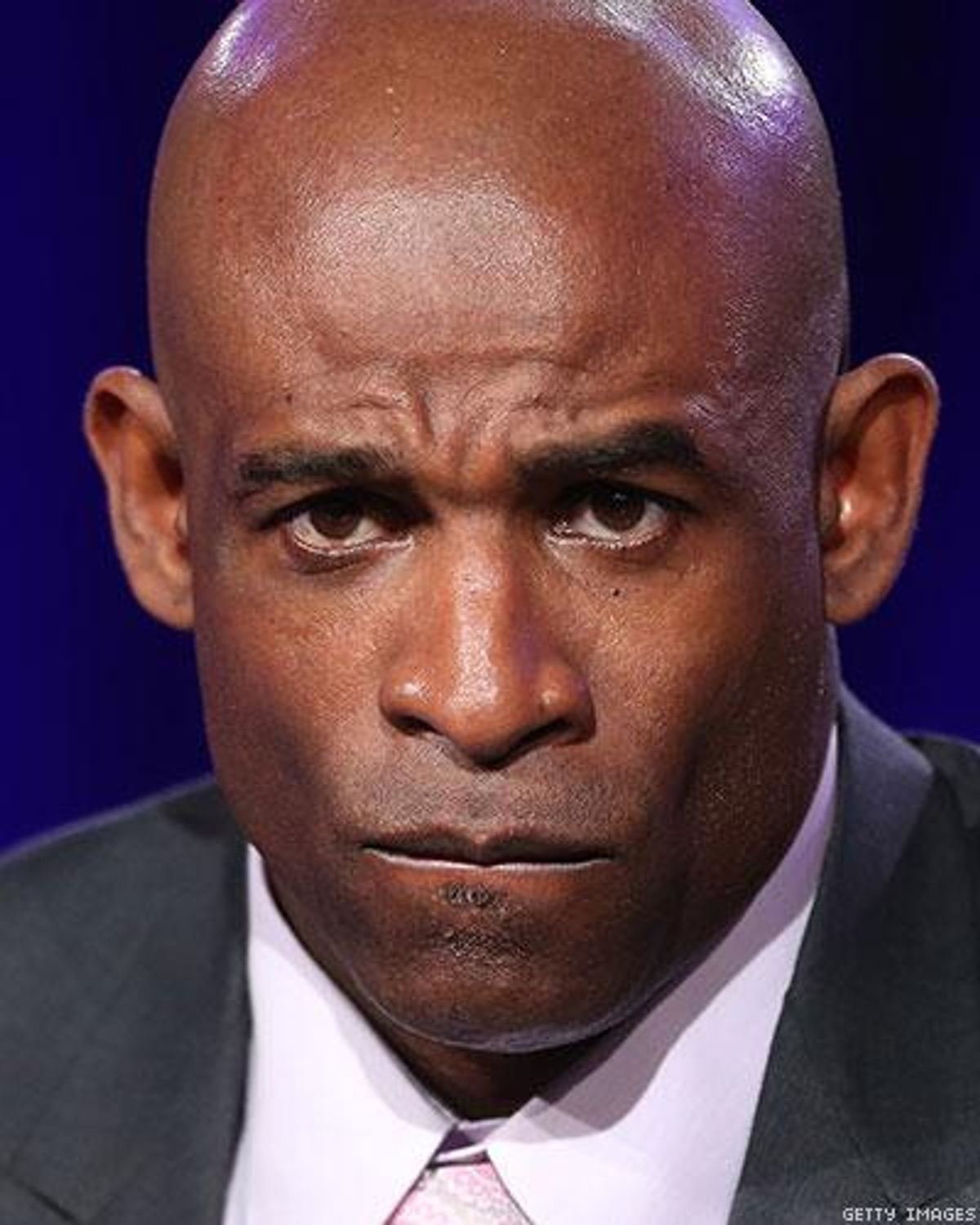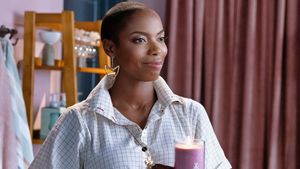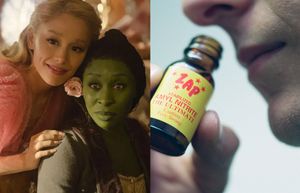Former NFL and MLB player Deion Sanders made headlines last week when he told Larry King he believed that being gay "could be" a choice. Here's the exchange:
King: What do you think of the gay athlete -- now Michael Sam got released by the Cowboys?
Sanders: You know, I reached out to Michael Sam because I have a cousin who's gay -- he's gay ever since we were kids -- and I'm not saying I condone it, but I don't condemn it. I don't love what he do, but I love him as a man, and I just wanted him to understand the burden and the weight that he's carrying.
King: You don't think it's a choice, though, do you?
Sanders: It could be.
King: I don't know why, who would choose it?
Sanders: Who wouldn't?
King: Oh, well.
Sanders: You know we would get into saying that God did this and God did that. The God I know don't make mistakes.
The whole exchange is cringe-worthy, but not surprising. Larry King has hosted a few awkward moments, especially for bisexual people, as of late. Last summer, he asked Anna Paquin last summer if she considered herself to be a "nonpracticing bisexual," and asked Alan Cumming just this month if ever he thought he was "strange" for being bisexual. Still, I'm inclined to give King the benefit of the doubt in this situation. He sounds less like a bigot and more like that old uncle everyone has who has reached the age where he just asks inappropriate or misguided questions.
This is not the first time Deion Sanders has expressed his less-than-accepting views on homosexuality. In an appearance on The Arsenio Hall Show shortly after Sam came out, he iterated that he didn't "condone nor condemn" homosexuality (seems to be his go-to phrase), but he noted that he had gay teammates on all five of the NFL teams he played for over the course of his career.
But aside from all that is this exchange about whether being gay "could be" a choice. Now again, considering the two parties in this interview, I am not expecting a rousing debate about the fluidity of sexual behavior versus sexual identity or a discussion about nature versus nurture and its impact on sexual orientation. They are, however, both public figures, each with their own massive following, and the implications of this brief exchange need to be understood by both men and those who think like them.
When King asks Sanders "who would choose" to be gay, he is repeating a sentiment many LGBT individuals express. For LGBT people who grew up in conservative or particularly religious households, coming to terms with their identity feels entirely counterintuitive -- it is oftentimes a literal contradiction to how they were raised. More broadly, LGBT people have often argued that they wouldn't choose to be gay because it's simply a more difficult life. By coming out, one is immediately thrust into a world where some legal rights must be sacrificed and personal safety is often threatened. Worldwide, the danger is even worse, with some countries still treating homosexuality as an offense punishable by death. Who would choose a life of potential discrimination, sacrifice, and risk?
This is what makes Sanders's "who wouldn't?" response to King's question "who would choose" to be gay so strange. For starters, I think it's safe to say that the two openly straight men having this conversation are two people who "wouldn't."
Sanders also just got finished saying he has a cousin who is gay (is that supposed to mean Sanders could not possibly be homophobic?) and has been since they were little kids, implying that Sanders recognizes sexuality is at least partially innate.
Sanders's insistence that homosexuality could be a choice, therefore, is simply a part of his greater belief: that God created humanity, and God doesn't make mistakes.
Therefore, in order for Sanders to rationalize homosexuality, he has to believe it is a choice because he is of the opinion that a naturally born gay person would prove God's fallibility. In his view, being gay is equal to being a mistake.
Aye, there's the rub.
I don't believe that being gay is a choice, but what I can say without equivocation is that being gay is not a "mistake" from God. Implying otherwise, which is what Sanders does, indicates that he does "condemn" homosexuality. He believes that being gay is a choice solely because he cannot justify how something he views as a mistake exists in nature. That is textbook condemnation.
Within the NFL, Sanders is not alone in his subtle bigotry. NFL free agent Patrick Crayton tweeted "There goes the NFL" and "Stay in the closet and keep to urself!!!" when Michael Sam was drafted by the Rams. After Crayton received backlash, he went on a Twitter rant where he also referred to being gay as a "choice." The Baltimore Ravens' assistant director of player development, Harry Swayne, had a questionable tweet of his own back in August, saying, "No no you've got that wrong we're the ones who love the homeless, poor, drunks, prostitutes, homosexuals, tax collectors, and abusers."
With comments like these, there's no question why some of Sanders's gay former teammates remained closeted.
While Sanders's statements may have been perceived as progressive back when he played for the Cowboys, he sounds kind of backward now. Take, for example the military's treatment of gay, lesbian, and bisexual service members. Though "don't ask, don't tell" was a cruel policy that kept countless service members closeted, and ended up causing the discharge of thousands of people, it was a step in reversing the military's policy completely barring LGB people. In theory, it was supposed to protect those who were closeted from being outed or discriminated against (again, it didn't quite work that way in many cases, but this was a crucial step). However, by the time the policy was finally repealed in 2011, forced closeting and blatant discrimination against LGB military personnel was utterly not tolerated in the court of public opinion. The military was forced to change with the times.
Similarly, while saying that you can tolerate gay people even though you don't condone their behavior may have been a stepping stone to universal acceptance in 1996, but the waves of time are rapidly eroding that stone.
The NFL's culture clearly needs to change. The lack of understanding of gay athletes and LGBT people is palpable, and the semantics of the people associated with professional football must catch up quickly. The NFL needs fewer buzz words and more sincerity -- less blind tolerance and more open acceptance. Representatives of the league have slipped time and again when talking about gay athletes, which points to the need for LGBT education and immersion within the league -- and ideally, ultimately, the first openly gay player.
ANNIE HOLLENBECK began her career in sports journalism at ESPN, not long after graduating from the University of Notre Dame. She is an avid runner, a New York sports apologist, and a self-proclaimed cinephile. Annie currently resides in Los Angeles, works as the production manager at Outfest, and covers sports for Advocate.com.


















































































